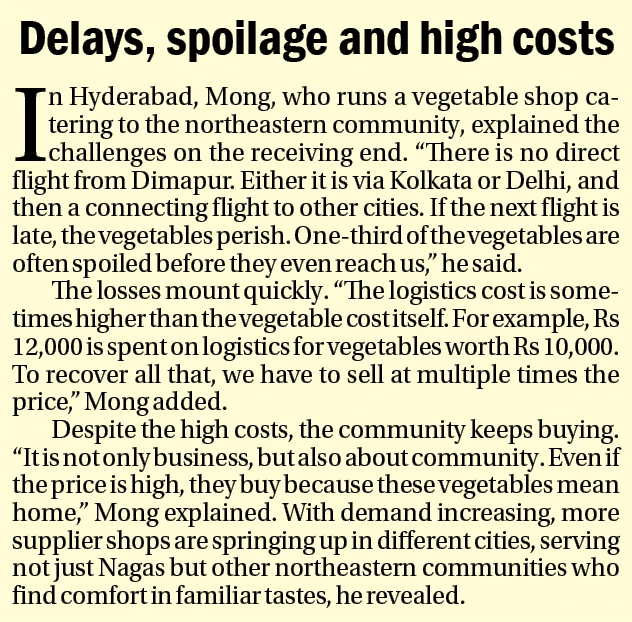Packers are seen organizing and packing vegetables on the roadside inside the Dimapur Airport for dispatch to cities across India. (Morung Photo)
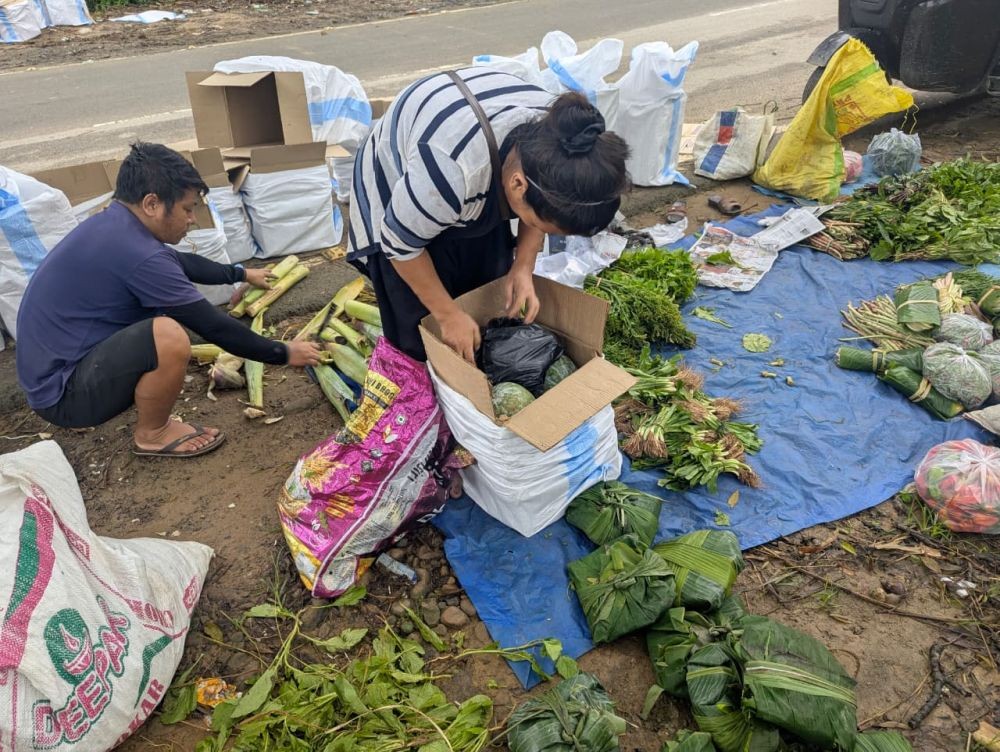
Vegetable couriers lament lack of cargo packaging facility at Dimapur Airport
Morung Express News
Dimapur | September 18
Before dawn breaks, a small band of vegetable couriers, entrepreneurs in the rawest sense of the word, begin their day at 1:30 in the morning. Their destination is not an upscale wholesale hub or a climate-controlled warehouse, but the weekly markets scattered across Dimapur and Chümoukedima- the Wednesday Bazaar, the Tuesday Market, the Friday Market, and Chümoukedima town’s own Saturday Market.
Here, they wait. They wait for truckloads of vegetables brought overnight from Wokha, Pfutsero, Kohima, Peren and other districts to arrive. Then begins the hurried selection—Raja Mircha, beans, squash, cabbage, green leaves, ginger, bitter gourd, pumpkin, bamboo shoots—whatever orders have been placed by faraway businesses, grocery shops and homesick students in Delhi, Bangalore, Pune, Hyderabad, Mumbai, Chennai, Indore to name a few.
Once chosen, the vegetables must be packed and dispatched before 8 or 9 AM, when the airline cargo counters close for the day. The problem- there is no cargo terminals, or designated packaging corner at the Dimapur Airport. Instead, these couriers crouch by the roadside within the airport compound, tying up cartons in the open, gambling with the weather.
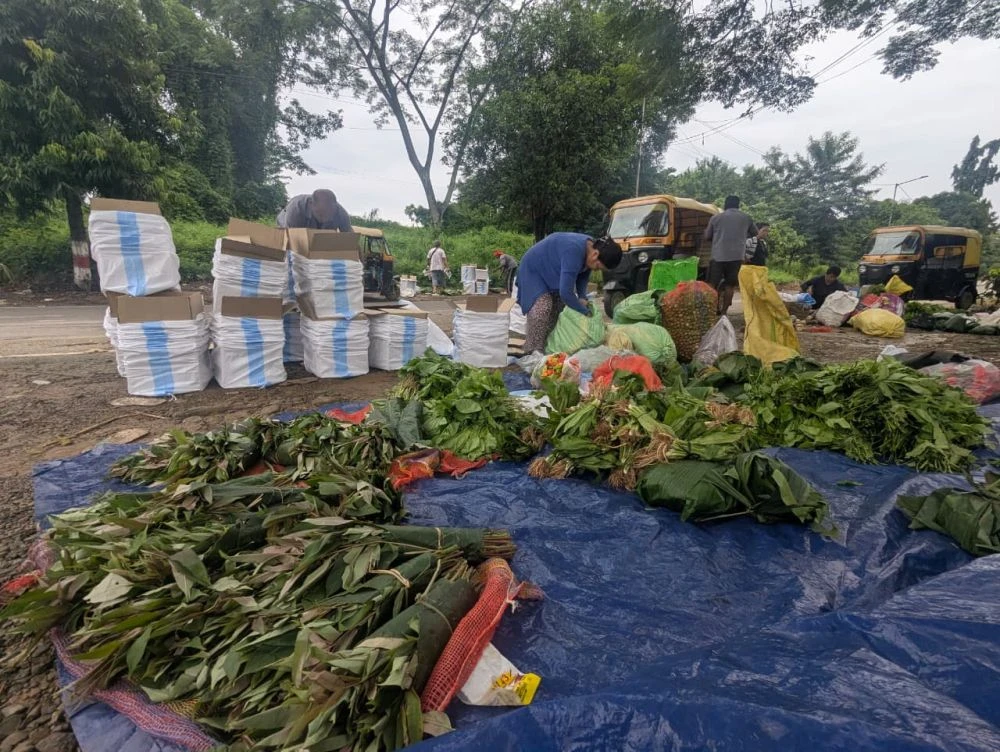
Most of the packers depend on auto rickshaws to transport their load from the markets to the airport. Going home to pack is not an option-it is too far, too time-consuming and too risky with the deadline ticking.
On a busy morning, the road leading to the Dimapur Airport terminal is lined with auto-rickshaws brimming with vegetables. The produce is unloaded by the roadside, where it is sorted and packed before being sent to cargo.
The nature of this business is built on trust and timing- businesses outside Nagaland sends money and lists of vegetables to be purchased, while the packers here shoulder the duty of procuring, sorting, packing and dispatching.
But the risks are many. On hot days, vegetables wilt quickly under the sun. During rains, they turn soggy and unfit for air freight. And when landslides or floods obstruct the highways—as is happening now between Kohima and Dimapur—the supply chain stalls before it even reaches the markets.
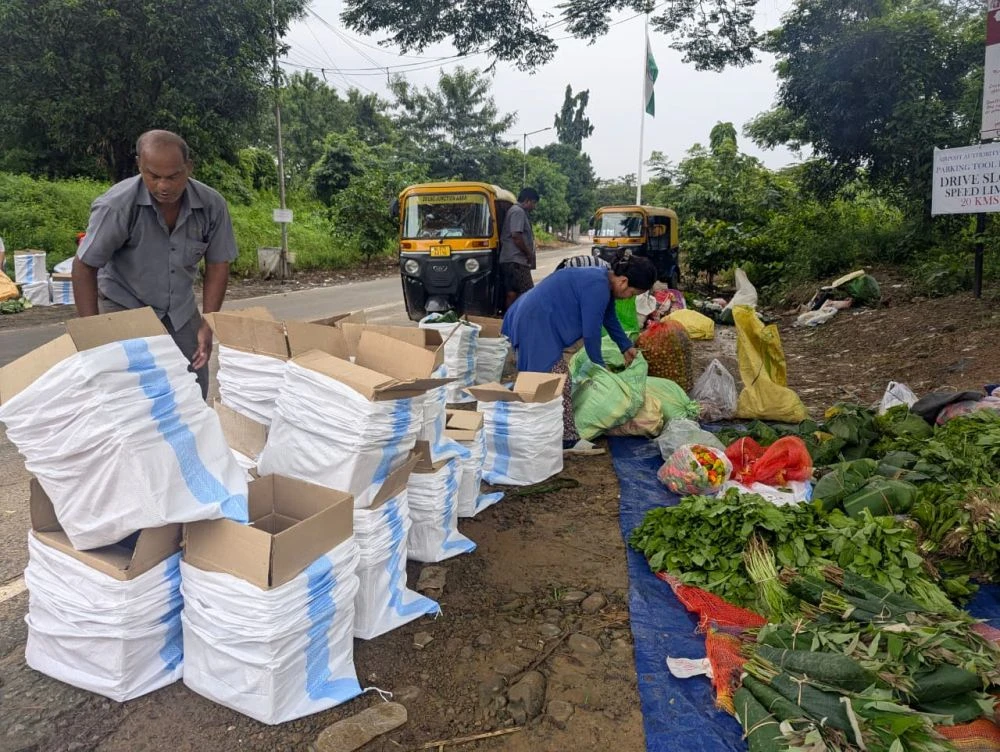
“If it rains, the whole thing is wasted. Cargo doesn’t accept wet vegetables,” one of the packers told The Morung Express.
That gamble backfired last Wednesday. Just as the packers were about to sort and pack their consignments, heavy rain set in, drenching vegetables and ruining entire orders. “It was a double loss,” said Kim, one of the packer. “The businesses outside had already sent us money in advance and we were left with spoiled produce that the cargo refused to accept.”
Dimapur’s lack of a dedicated cold storage facility worsens the problem, leaving perishable goods vulnerable to spoilage if not sold immediately. This past week, with road blockages preventing vehicles from Kohima and other districts, several weekly markets in Dimapur and Chümoukedima had limited supplies.
And yet, the demand is only growing. Organic produce from Nagaland has carved a niche in Indian cities, catering especially to the northeastern population who long for the taste of home. Behind every neatly packed crate that arrives in Delhi or Hyderabad is a logistical marathon, farmers from distant villages trucking in their produce, early morning markets sorting and selling and these sleepless entrepreneurs stitching together the final leg of the chain.
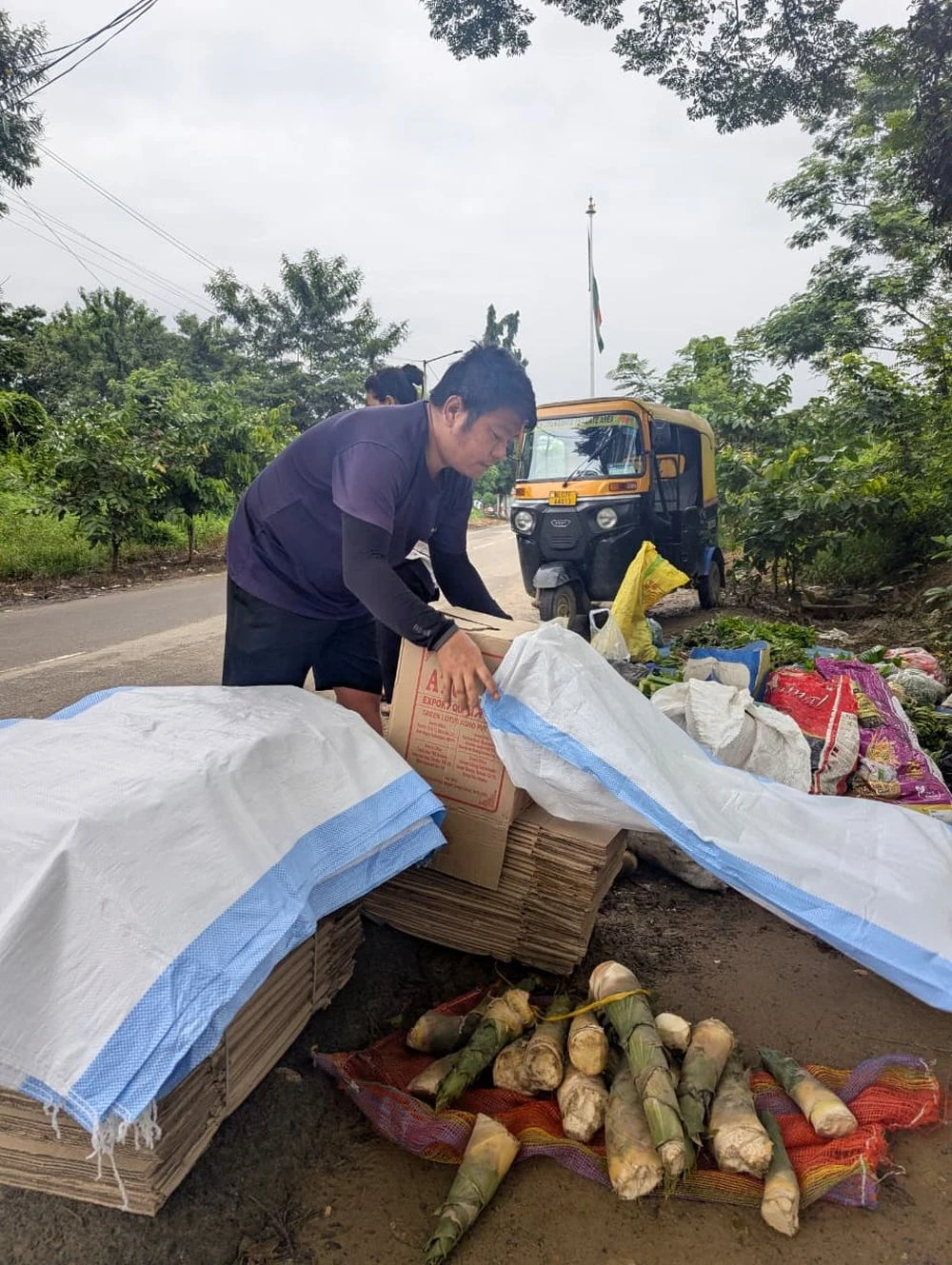
Without even a packing or cargo handling facility at the Dimapur Airport, the entire operation always hangs by a line. “It is essential that the airport authority construct a cargo handling facility. It is not like we are doing free business. The freight cargos of different airlines benefit from our services,” one packer said.
“It’s not just a business,” another added. “It’s a service and also a livelihood for us. Students and families outside Nagaland wait for these vegetables. But for us, it’s sometimes a gamble.” And until a packaging facility is provided, Dimapur’s pre-dawn vegetable economy will continue its fragile, rain-or-shine routine.
